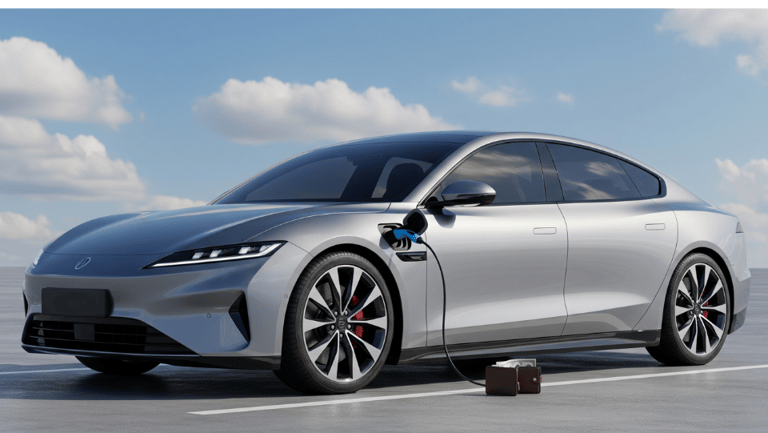“The Hidden Costs of Owning an EV in the USA: Your 2025 Reality Check”
TRANSPORT


Electric cars sound like a smart financial move, right? Fewer oil changes, cleaner air, and all that. But the true cost of owning one might surprise you — from pricey insurance to expensive charging detours. Let’s break it down
Financial Considerations
1. Higher Insurance Premiums
EVs typically cost more to insure than internal combustion engine (ICE) vehicles. This is due to higher repair and replacement costs, especially for components like batteries. For instance, a new EV battery can range between $4,000 and $20,000, compared to $100–$200 for an ICE car battery.
2. More Expensive Repairs
Repairing an EV can be more expensive than an ICE vehicle. In Q1 2024, the average repair bill for an EV in the U.S. was $6,066, which is 29% higher than the average for ICE vehicles. (insideevs.com)
3. Additional Registration Fees
Many states impose extra registration fees on EVs to compensate for lost fuel tax revenue. These fees can range from $50 to $225 annually, depending on the state. (atlasevhub.com)
4. Home Charging Installation Costs
Installing a Level 2 home charger can cost between $799 and $1,999, depending on the specific project needs. (qmerit.com)
Charging and Infrastructure Challenges
5. Public Charging Reliability
Public EV charging stations in the U.S. have faced reliability issues. As of early 2023, at least 1 in 5 charging attempts failed due to various problems like out-of-order stations or software glitches. (hbs.edu, insideevs.com). Hopefully, statistic for 2025 will be more promising.
6. Higher Public Charging Costs
Charging an EV at public stations can be significantly more expensive than home charging. For example, a GMC Sierra EV owner reported paying $116.77 for a single charging session at EVgo, covering 355 miles. (torquenews.com)
🔋 Battery Concerns
7. Battery Replacement Costs
Replacing an EV battery can be costly. Depending on the make and model, replacement costs can range from $4,000 to $20,000. (progressive.com) That’s nearly the price of a used Toyota Corolla — just for the battery.
8. Battery Degradation
EV batteries degrade over time. Studies have shown an average degradation rate of about 1.8% per year under moderate conditions. (geotab.com)
9. Recycling Costs
Recycling EV batteries is an emerging challenge. The cost to recycle a typical 500-kilogram battery can range from $500 to $7,500, depending on the recycling method used.
🔥 Safety and Maintenance
10. Fire Risks
While rare, EV battery fires can be intense and difficult to extinguish. Factors like accidents or manufacturing defects can lead to thermal runaway, causing fires. (wired.com)
11. Software Recalls
EVs are susceptible to software issues that can lead to recalls. For instance, Mitsubishi recalled nearly 200,000 SUVs in the U.S. due to a software defect affecting the rearview camera system. (thesun.co.uk, timesofindia.indiatimes.com)
🧾 Conclusion
While EVs offer benefits like reduced fuel costs and lower emissions, potential owners should consider the additional expenses and challenges associated with them. It's essential to evaluate these factors to make an informed decision about transitioning to electric mobility.
